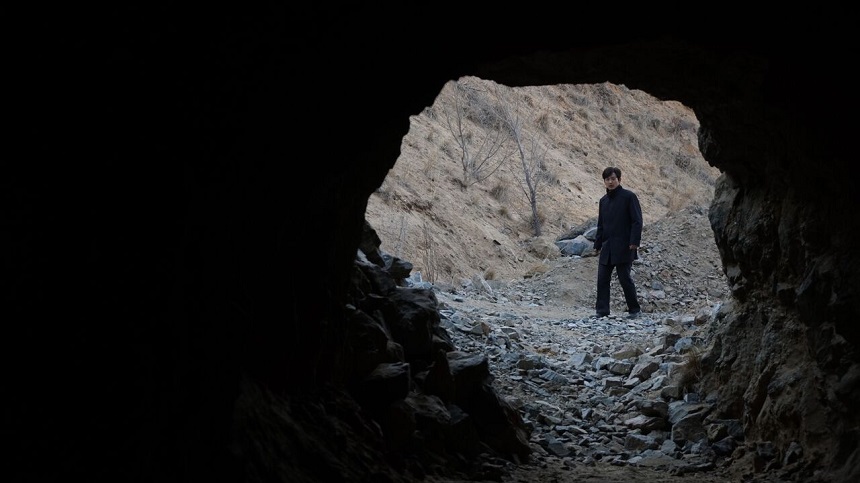Melbourne 2018 Review: WRATH OF SILENCE Violently Twists and Turns an Epic Tragedy

Genre influenced festival fare from China keeps on impressing, and Wrath of Silence may be the best, and most commercially friendly of recent efforts yet. This is the kind of film that grips you, and long after seeing it, parts flick into your head. This kind of powerful filmmaking needs to be awarded and seen.
Wrath of Silence starts almost immediately with nods to auteur work the likes of Fargo; in the opening credits the camera pans slowly forward and the music crescendos before we are violently introduced to the fated mute patriarch Zhang Baomin (Yang Song). He must leave his job and return to the wilds of the mining frontier land his family resides in. His son, who has taken over some of his duties, has gone missing, and it is not long after Zhang returns to this exploited land that he becomes embroiled in the seedy affairs of local mining operator and corrupt gangster cum businessman Chang Wannian (Wu Jiang, brother of famous Director Wen Jiang). Wu Jiang steals every scene he is in, coming across as both goofy and sadistically menacing.
When Zhang suspects Chang’s operation may know something about his son, he sets into motion a visceral and reckless journey of revenge. This is further complicated by Chang’s lawyer, whose daughter also goes missing, leading to a spectacular series of tragic circumstances, fuelled by Zhang’s wrath of silence.
You can almost hear Zhang’s internal anguish; there are times in the film where his silence speaks for the situation far more than any script ever could, and it is a powerful, incredible performance that informs how desperate and troubled the father figure can be. Like the sinister hotpot meat Chang freshly slices and indulges in daily, Zhang too feels like a lost lamb in this complex corrupt system, where rings of deceit and intimidation form villains against villains, in the vein of a no man’s lawless land, the likes of Unforgiven or a Sergio Leone feature.
Although the missing children angle is also reminiscent of The Searchers, Wrath of Silence is less of a Western and more of a neo-noir. The lean, gritty cinematography and pulsing soundtrack lend itself to that aesthetic, and the film is also set in the early two-thousands and has a critical attention to detail in regards to that time, particularly in China. Furthermore, the blood and rust in the shimmering sun-baked outskirts replace the shadows and darkness of the noir, but the intrigue is the same. The location is an uncanny one, as society progresses, mere miles away from the urban sprawl is a desolate mining village that feels far more primitive and backwards than the home or workplaces of the big-wigs running the show.
The action sequences also work better in the crime-thriller vein than the tense shootouts of Western appeal. Throughout Wrath of Silence is sudden explosions of violence punctuated by severe editing. This is also a spatial thriller, it uses distance between characters and time as plot points and ups the tension and action by creating threats and drama from this; from the arid wide mining land, to the tightly packed interiors of an office building, Director Yukun Xin knows how to use space to communicate violence and tragedy.
Without spoiling the film, the irony of the father’s condition, and how this space he traverses is used becomes all too clear by the Shakespearean climax, and the constant jaw dropping reveals hit hard by the time the credits roll. Additionally, there is a tracking shot that bridges the gap between the desolation of the mining land and the cityscape as the film is wrapping up that is one of the most perfect moments in cinematography, and just has to be mentioned here.
Wrath of Silence is the kind of film that hints at something lurking underneath, and although it has a conventional feel while watching, by its epic conclusion, it will be hard to think about anything else. This is a masterpiece of cinema; do not miss Wrath of Silence.
Book Wrath of Silence now at the Melbourne International Film Festival.







